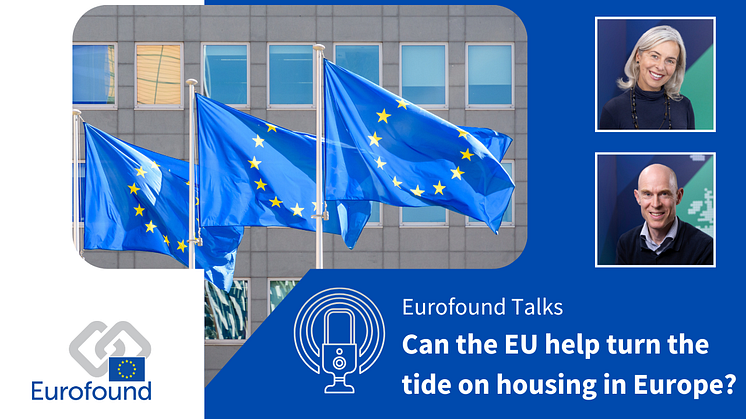
News -
Two-thirds of unemployed people in the EU do not receive benefits
Around two-thirds of unemployed people in the EU do not receive benefits, often because their employment records are shorter than required, or their benefits have run out.
Social benefits play a significant role in the lives of people on low incomes, halving the number of people at risk of poverty in the EU in 2022; dropping from 31% to 15.5% among the working-age population. In some Member States – such as Austria, Ireland, France, Poland and Slovakia – social transfers bring the at-risk-of poverty rate down from above-EU-average to below-average levels.
Eurofound’s new report Social protection 2.0: Unemployment and minimum income benefits focuses on unemployment and minimum income benefits for people of working age. Individuals with short or no employment records (mainly young people), the self-employed, those with non-standard working arrangements, and the long-term unemployed are often not entitled to higher-tier, or any, unemployment benefits.
The report also investigates the rejection of applications (frequently, around 30% are rejected), the digitalisation of application processes (most common for unemployment benefits) and economic activation requirements (typically, 1–6% of benefit recipients annually are sanctioned for not complying with activity requirements) and service entitlements.
No Member State was identified where more than 80% of those entitled to minimum income benefits receive them. Benefit recipients at higher risk of having an inadequate income include those without access to social housing in areas with high housing costs, unemployed individuals whose most recent job was low paid and long-term unemployed people.
The report notes that authorities’ proactive approach to chasing overpayments contrasts with their efforts to identify non-recipients who would be entitled to benefits if they were to apply.
Among those receiving benefits, the proportion of previous earnings paid as unemployment benefit ranges from 50% to 90%. In 15 Member States, the amount decreases over time. Several countries have accelerated such decreases since 2023. Paid amounts are capped at below 60% of national average wage in almost half of the Member States.
Those living in single-adult households, women and non-nationals are overrepresented among minimum income benefit recipients. Unemployment benefit recipients are more often nationals and men, but over the past decade women have taken over as the majority in several Member States. Some countries have simultaneously seen the duration of benefit receipt increase and recipient numbers decrease.
The report emphasises that to ensure basic living standards, and enhance social inclusion and employment prospects, social protection should go beyond merely enabling survival. To achieve this, and to cater for varying needs, access to enabling services is key.
The erosion of income adequacy can be prevented by automatic indexation, especially for minimum income schemes that people tend to depend on for longer. This is important for gender equality, as women are overrepresented among recipients. Indexation should respond to sudden inflation changes and consider that inflation faced by low-income households may outpace general consumer price indexes.
Complex benefit systems require considerable investment in information provision and increase rejections and non-take-up. This can be addressed by investigating reasons for rejections and widening coverage by making entitlement criteria easier to understand and automate.
The report notes that digital applications can improve access to benefits, but create inequalities and reduce face-to-face opportunities to identify support needs. To counter this, innovative ways of engaging applicants digitally should be explored, and resources freed-up by digitalisation can be used to improve access for digitally excluded groups.
- Download the report: Social protection 2.0: Unemployment and minimum income benefits






